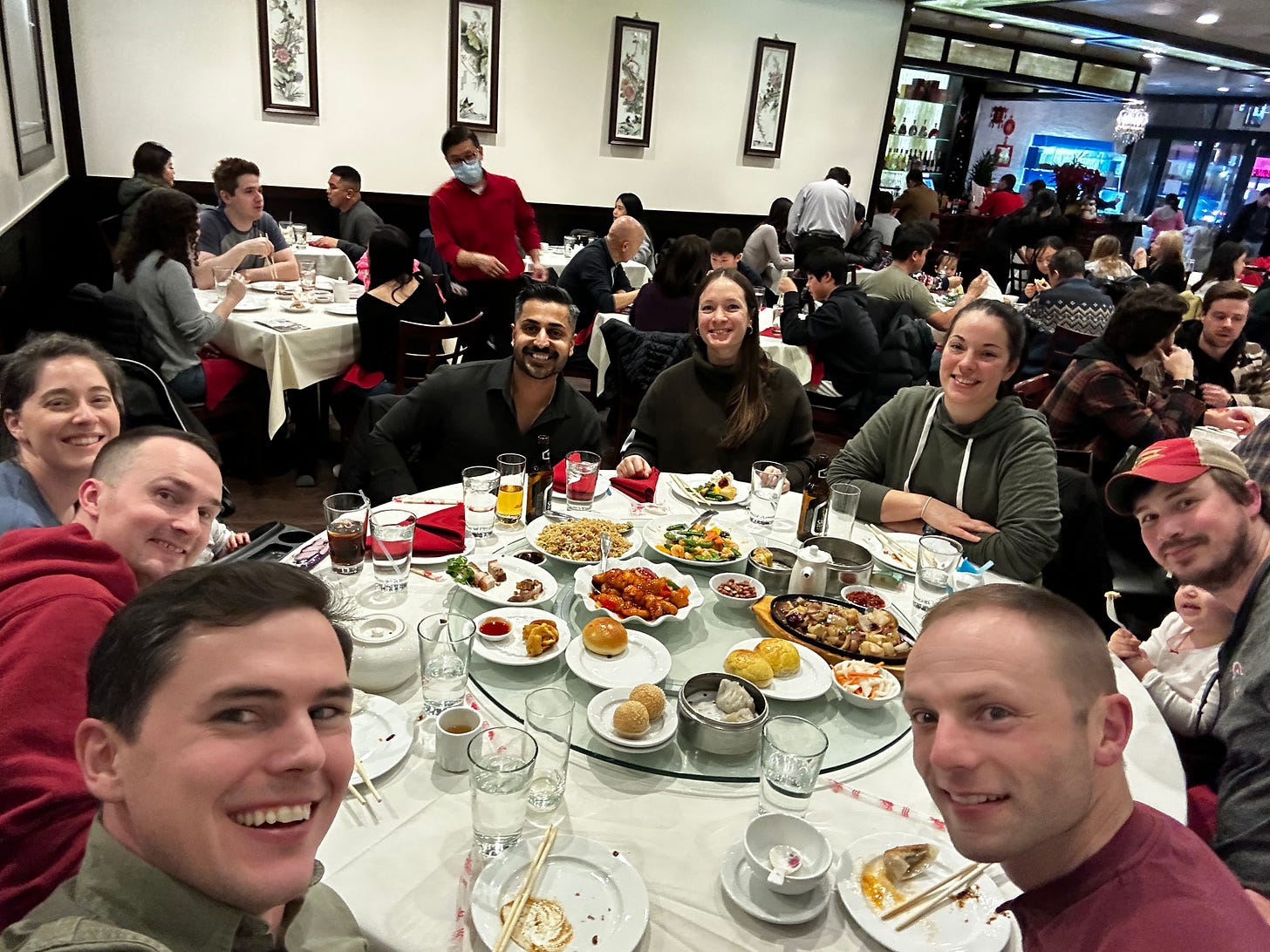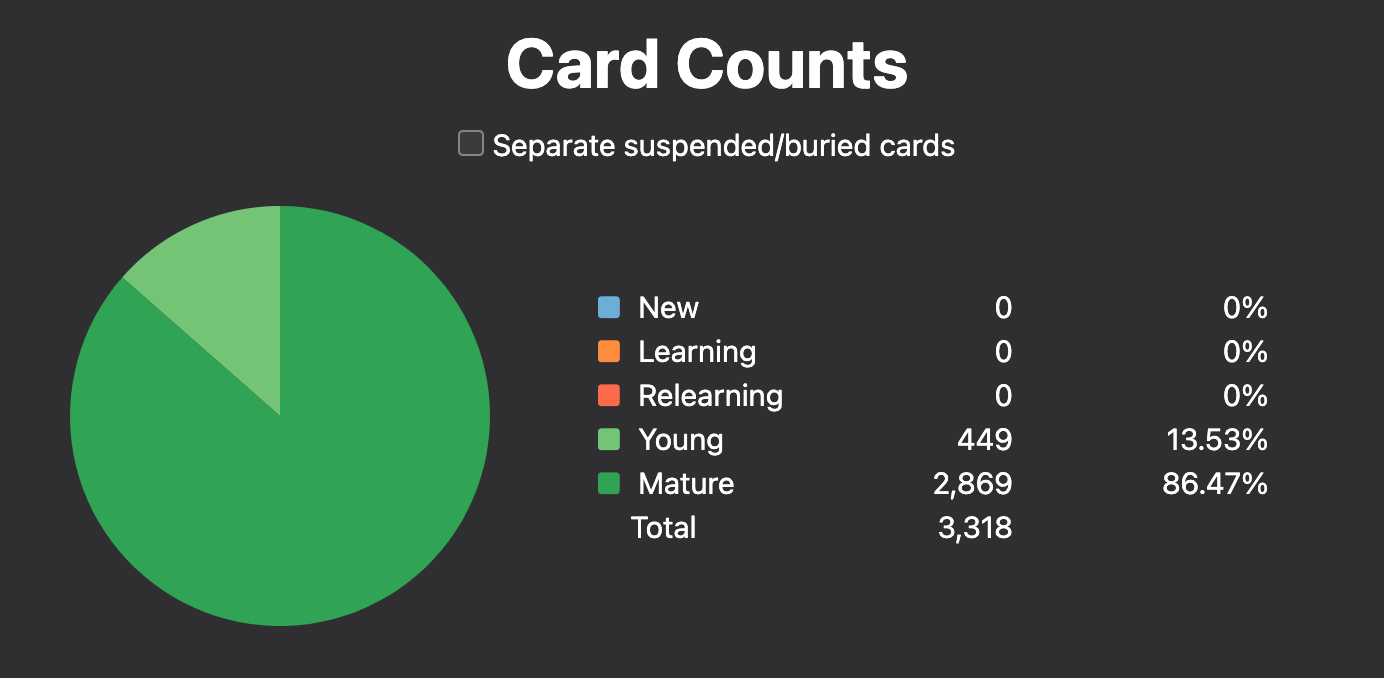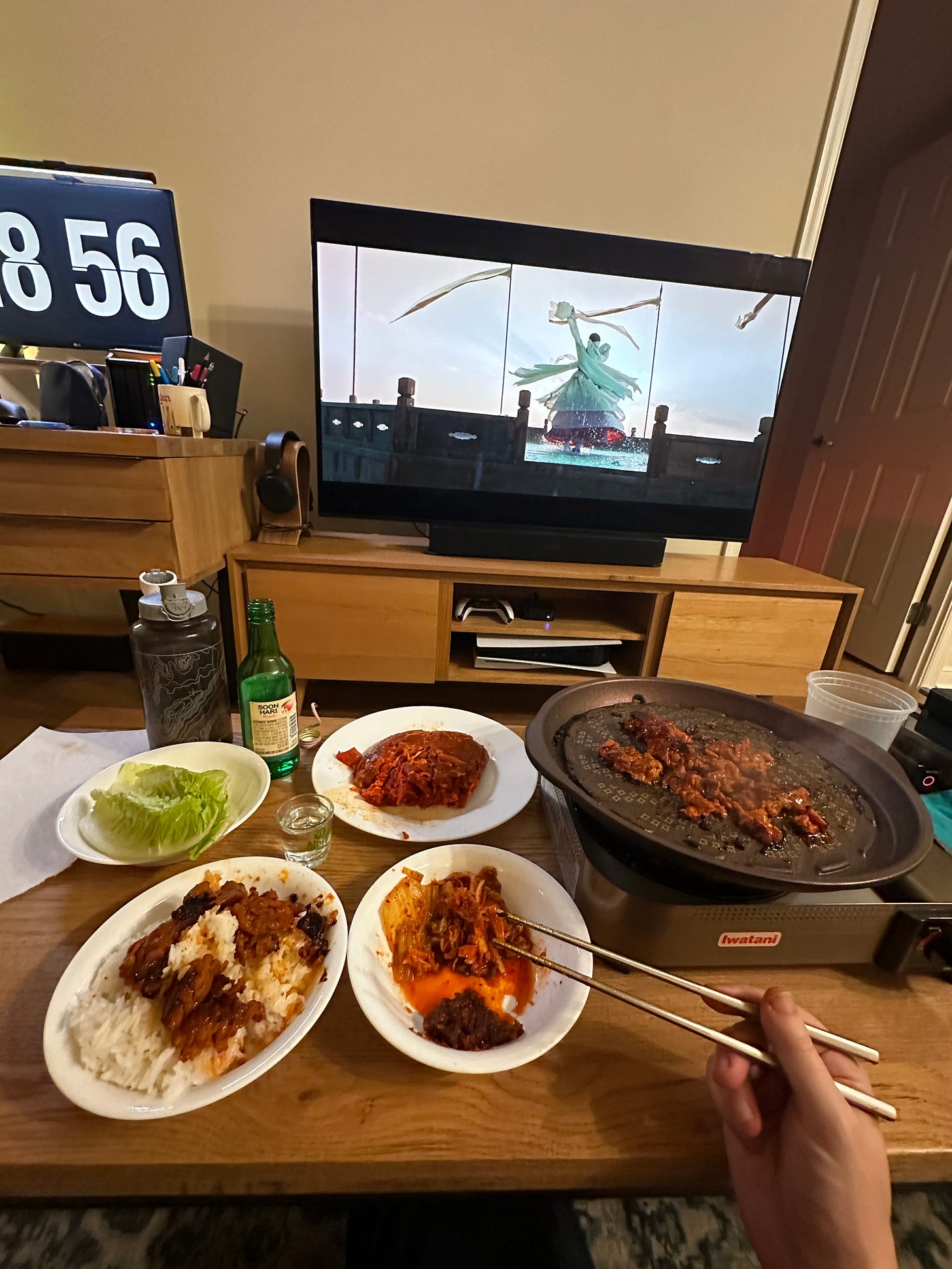January Recap
Monthly update of my Korean language progress (weeks 30-33)
안녕하세요~~
The new year got off to a great start with another productive month of learning Korean! January included cultural events throughout the city to celebrate the lunar new year, social events in my personal life and with other Olmsted Scholars here in DC, and the biggest jump so far in my Korean ability. The best part of all is that I’m having an absolute blast right now and it’ll only get better and more rewarding.
Completed in January:
I definitely did less grammar study this month and a lot more speaking and listening practice instead. A few months ago, the intermediate level “Talk To Me In Korean IYAGI” podcasts were usually hard to understand, but now, I can pick any random Korean conversation and understand at least 80% of it which feels good. Once I finish all 100 conversations (~10 mins each on average, perfect for my walk to the subway), I’ll probably go back and shadow/mirror them to increase my speaking speed and flow.
As far as vocabulary goes, it’s been 213 days in a row of completing my flashcard deck, and memorizing new vocabulary words gets easier and easier as time goes on. I remember how hard it was in the beginning when the alphabet was still new and I didn’t know many Chinese character roots (한자), but now it’s just a consistent routine that has proven to work well. So far, 3,318 words are pretty solid, and I have other flashcard decks for idioms, grammar points, etc. I’m on track for my original vocabulary goal by the time I move to Korea so I don’t plan on changing my vocabulary strategy anytime soon.
This month I also finished the 1st “semester” of the DLI curriculum out of 3 total for the full Korean pipeline. My condensed timeline will end before the end of 2nd semester, so I’ll be missing out on a lot of the North Korean language instruction and niche topics of semester 3, but I’m not worried about that for my purposes. Anyway, at the end of each semester, DLI has us take a cumulative exam composed of a reading exam, listening exam, and a graded speaking interview. Like in previous unit tests, I aced the reading and listening portions, but again got nervous and made quite a few simple and embarassing mistakes during the recorded role-play conversations. This time, the role-play was a simple interaction between friends on the phone discussing which movie to go see at the theater and why, where and when to meet, etc., but I had to speak in 반말 (casual language), but I only ever speak in 존댓말 (formal language) in class. I realized as I started the conversation that I’ve never actually spoken in 반말 before, and while it should be a simple change (mostly changing verb/sentence endings), I got so stuck at the end of each sentence. Lesson learned, and it’s important that I fix this gap before awkwardly sounding super stiff to Korean people I meet!
I also accidentally started a tradition after my first unit test (finished 8 now) where I cook a “Korean bbq” style meal at home to celebrate and recover for the next unit, so this exam was no exception. My local liquor store is starting to recognize me as the guy who keeps buying Soju…whoops 😂
I cooked quite a bit of casual Korean food this month for dinner, but the standout dish is the traditional 떡국 (rice cake soup) that Koreans have on the Lunar New Year! It’s quite delicious, and I made a test batch (below) before adjusting for a live demo to my language school to celebrate the Lunar New Year. A decent recipe in English can be found here: https://www.maangchi.com/recipe/tteokguk
Five Asian country classes presented their respective country’s unique lunar new year traditions, and for the Korean demonstration, we acted out the traditional “new year bow” ceremony, showed off some folk games, and I made the rice cake soup and explained the significance of each ingredient. Of course, a delicious feast followed!
The biggest win of the month was realizing how far my speaking ability has come. I started with a new tutor in italki this month (just 1x/week for now), and each conversation has been almost entirely in Korean where my tutor corrects my mistakes and explains in Korean the nuances between different grammar or word choices and helps me sound more natural. In my in-person class, after I was properly warmed up, I’ve had long conversations entirely in Korean about politics, changes in US and Korean society, etc., which I couldn’t imagine doing even two months ago.
We unfortunately have to get back to the proper textbook curriculum eventually, but I learn so much more through these conversations with my teacher. With a few thousand words under my belt and a decent grammar foundation, there is so much that I CAN say already, and it feels so rewarding to get “in the zone” and communicate freely. I of course still sound very unnatural and frequently pause to double-check or fix my particles (Is this noun a subject or an object in this compound sentence, and do I need this other particle to emphasize this noun or change the focus??) or decide which verb makes the most sense (verbs in Korean are quite different and are much more important than in English!), but I’ve definitely improved and make fewer mistakes than I used to.
Thanks for checking in and until next month, be well and stay warm!
-Sean






